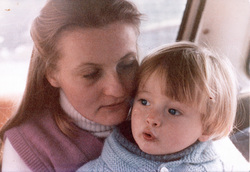
A couple of weeks ago, the Ethics Committee of the ASRM (American Society for Reproductive Medicine) published a paper called "Oocyte or Embryo Donation to Women of Advanced Age." In it, the ASRM changed its long-standing policy so as to allow embryo transfer to women up until 55 years of age (where the women have no underlying medical issues that could increase health risks), an increase from the previous limit of 52 years of age. The reason behind the change? At least partly, this change reflects the fact that we now have data demonstrating that for women between the ages of 50 and 54, embryo transfer and pregnancy does not pose a significant increase in health risks to the mother or child as compared to younger women. However, studies show that women over the age of 55 are far more likely to experience hypertension, gestational diabetes and caesarian sections as compared to women in the 50-54 age range. Further, the limited data available about parenting in women who conceived and delivered after the age of 50 does not support the concern that such parents have reduced parenting capacity or capabilities; rather, children of these parents may benefit from increased financial and emotional stability.
Where there is no significant medical reason, and no empirical evidence demonstrating that older parents are any less fit than younger parents, is it right to deny an older women access to IVF solely on the basis of age? I think not.
Various jurisdictions across Canada have enacted legislation prohibiting the denial of services, including medical services, to a person on the basis of age (along with race, gender, sexual orientation and marital status, among others).
The denial of fertility services to a woman solely on the basis of her age falls squarely within the realm of age discrimination. Age is one concern, but what about the other bases of discrimination listed in the relevant human rights codes and acts? For example, there are those who argue that it is in the best interests of children to be raised by heterosexual parents.
Similarly, others may argue that it is detrimental for a child to grow up in a single parent household, in which the parent may be more stressed, have less time and attention for the child, and the child may have less access to financial and other resources. Thankfully, for the most part, we as a society have done away with the stigma associated with same-sex families or single parent homes, and in Canada, fertility services are largely provided to heterosexual, same-sex, married and single people alike. However, if we begin denying fertility services to a 53-year-old woman (thus effectively determining who may and who may not be a parent) without any empirical evidence in support of the policy, it is not much of a stretch to imagine denying fertility services to other groups, including single parents or members of the LGBT community, all in the name of the best interests of the child.
Further, even if we look at this issue solely from the perspective of the best interests of the child and ignore any reproductive right to which the mother may be entitled, it is faulty logic to assume that younger parents = good, while older parents = bad. For example, if we had a situation where the prospective mother seeking to access IVF is 53 years of age while her partner is 65, we have one set of concerns that is effectively minimized where the same
woman's partner is 37 years of age. Similarly, if we look at a situation where the prospective mother is 53 years old but healthy versus a situation where the mother is only 30 years old but has a terminal illness or an illness which will
greatly affect the quality of her parenting, the best situation for a child may, in fact, be with the older mother. There are many factors that go into determining who makes a good parent, and if age is arguably a factor, it is one of many. For example, if we decide that mothers older than 52 ought not be parents, could we not make similar decisions on the basis of the mental health of a parent, financial resources available to the family, functionality of the family and the like? Drawing hard lines in the sand about something as arbitrary as the appropriate age to be a parent is an overly simplistic view that will undoubtedly result in poor decisions.
The ASRM's change in policy is refreshing in that it is based on empirical evidence. This contrasts sharply with Canada's sorely lacking legislation dealing with the use of assisted reproductive technologies, borne out of fear of the unknown. Instead of non-parties continuing to impose their moral judgment on others about they choose to build their families, perhaps we can recognize that most women between the ages of 53-55 who now access IVF as a result of ASRM's policy change will be making a well-considered decision to bring a wanted and loved child into the world. Let's give these parents some credit. Besides, what right do we have to make this very personal decision for them?

 RSS Feed
RSS Feed